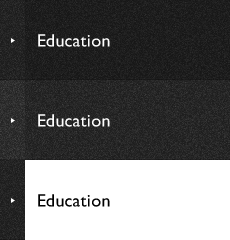400-level and above graduate major courses are designed for gaining the knowledge and abilities needed by leaders who tackle problems related to people, society, and science and technology using their knowledge and expertise in humanities, social sciences, and science and engineering, personal background and experiences. In this Graduate Major,students can systematically acquire the following knowledge and skills: extensive knowledge in humanities, social sciences, and science and engineering; area-specific knowledge in the fields of politics, law, and administration, education, welfare, and health, culture and art, science, technology and society, and cognition, mathematics, and information; versatile skills such as critical analysis and integration ability, interdependent relationship-building ability, and the ability to initiate a dialogue across multi-field and multi-cultural environments; the ability to understand diverse knowledge structures, values, and world views; high ethical standards, sensitivity, flexibility, sense of responsibility, and positivity; and the ability to bridge society, and science and technology using insight, reflection, and dissemination skills.
-
- Research Seminars
- Research Seminars are given by teaching staff according to their specialty in cultivating advanced expertise, analysis and integration ability, value-creation ability, or problem-solving ability.
-
- Common Project Dialogue Dispatch
- This is a project type course for acquiring extensive knowledge, relationship-building ability, ability to initiate dialogues, a diverse knowledge structure, and the ability to bridge society and science and technology. Presentations, poster sessions, paper and report writing, debates, etc., are done individually and in groups. Dialogues are initiated across academic years and programs in order to acquire communication-initiating skills and enrich human qualities.
-
- Relationship-building
- To acquire interdependent relationship-building skills, an understanding of diverse values and world views, and rich human qualities, students will participate in overseas study academic meetings, intensive seminars, workshops, internships, etc., and plan, manage, and support academic meetings, intensive seminars, workshops, etc.
-
- Analysis and Integration
- This course is for acquiring extensive knowledge; analysis and integration ability; a diverse knowledge structure; and the ability to bridge society and science and technology using insight, the ability to reflect, and dissemination skills. Those with a background in humanities and social sciences will study the basic knowledge, and analysis and integration methods of the science and technology field, and vice versa. This helps students acquire reception-type communication skills.
-
- Politics, Law, and Administration
- Courses consist of Advanced Courses and methodologies for acquiring specialized knowledge and methodology in politics, law, administration, economy, society, etc., and using them to create value and solve problems.
-
- Culture and Art
- This course consists of Advanced Courses and methodologies for acquiring specialized knowledge and methodology in art, literature, cultural anthropology, philosophy, history, etc., and using them to create value and solve problems.
-
- Science, Technology and Society
- This course consists of Advanced Courses and methodologies for acquiring specialized knowledge and methodology in science history and science studies; engineering history and engineering studies; philosophy of science; science and technology ethics; science and technology policy; science and technology communication, etc., and using them to create value and solve problems.
-
- Education, Welfare, and Health
- This course consists of Advanced Courses and methodologies for acquiring specialized knowledge and methodology in education, psychology, health and sports science, etc., and using them to create value and solve problems.
-
- Education and Cognition
- This course is a teacher-training program in the education, welfare and health fields and the cognition, mathematics, and information fields.
-
- Cognition, Mathematics, and Information
- This course consists of Advanced Courses and methodologies for acquiring specialized knowledge and methodology in cognitive science, mathematical science, information, language, decision making, etc., and using them to create value and solve problems.
*1 Indicates the standard model where the master's program is completed in two years.
. Any information published on this site will be valid in relation to Science Tokyo.


